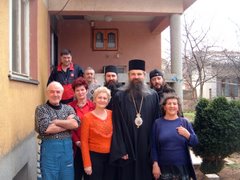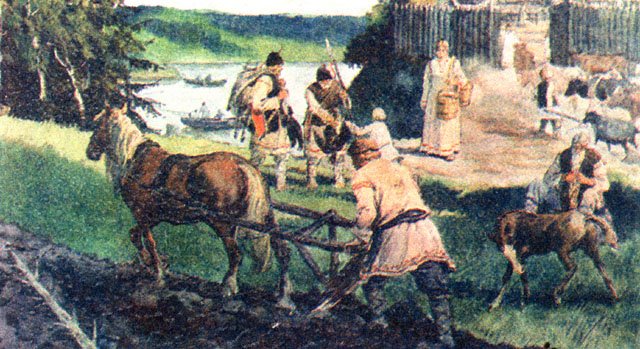Russian Government Official Says That Independent Kosovo Sets Dangerous Precedent
Republics Have The Right To Secede, But Not Provinces
23 August 2006
this story is based on an UPI article:http://www.upi.com/NewsTrack/view.php?StoryID=20060823-014041-4105r
In an interview with Izvestia, a Moscow newspaper, Grigory Karasin, Deputy Foreign Minister of Russian said that independence for Kosovo would create a precedent in international law that could further complicate the dialogue that is occurring between disputed regions in other parts of the world. He mentioned such regions as Russia, the formerYugoslavia and Czechoslovakia as being particularly vulnerable.
Independence for Kosovo would define the question of whether provinces have the same rights as republics to break away from an established nation-state. As cultural and economic concerns are leading determinants in a question of this magnitude, instability in the affected regions would be the most likely outcome. In Kosovo, because of historical conflicts between the Orthodox Christians and the Albanians in the area, genocide against the Christians will be the most likely event to occur if such a scenario gained legitimacy in international law.
According to the UPI lead, Karasin said that Kosovo's status as an autonomy which is part of a federation is different than that of a republic that is part of federation. In other words Kosovo is to Serbia as New York is to the United States; it does not compare with ancient Macedonia's status--under Phillip II to the Hellenic Federation--and according to some obervers-mainly Serbians and their sympathisers it never has.
Particularly in the last 60 years Albanians have forcibly displaced the Serbian population in Kosovo-Metohija and have thereby artificially increased their presence in the area. They are now using their population numbers along with other criteria to justify their desire for independence. Some entities in the international community led by the United States and Britain want to give Kosovo-Metohija this independence. The debate seems to be a key sticking point amongst the Contact Group which consists of Britain, France, Russia, United States, Italy and Germany. The Contact Group are acting as mediators and observers as Belgrade continues negotiating with Pristina. Russia consistently states that independence for Kosovo is not a good precedent for international law. In January of this year President Putin statements were mis-construed when he said that if Kosovo is given such status, why not give independence to S.Ossetia, the province of Georgia. He re-iterated in a later interview that international law should abide by its universally applicable standards and not make up standards in one region while enforcing them in another. His views were reacted to by other Balkan state officials including Transdneister breakaway state of Moldova, S.Ossetia and Abkhaz, breakaway states of Georgia and Nagorno-Karabakh (Azerbaijan) breakaway province of Armenia. Putin in that 31st of January address said that there is no reason not to grant independence to these states if Kosovo is given independence by the international community. He also mentioned Turkey's recognition of N. Cyprus as a case in point. The Russian federation has been acting as a peace keeper in the region of S.Ossetia and Abkhaz. Russia is a member of the Commonwealth of Independent States. Membership in the CIS consists of Azerbaijan, Armenia, Kazakhstan, Georgia, Krygystan, Russia, Moldova, Tajikistan, Turkmenistan, Uzbekistan and Ukraine.
News Story
Wednesday, August 23, 2006
UN Envoy Visits Kosovo To Push Rights Deal For Besieged Serbs
PRISTINA, Serbia (AP)--The U.N. special envoy for talks on Kosovo's future status was visiting the province Tuesday in an effort to push through a deal on giving minority Serb communities more rights, a spokesman said.
Martti Ahtisaari planned to spend three days in the U.N.-run province to meet with U.N. mediators and ethnic Albanian and Serb leaders on issues still to resolve in the negotiations on whether Kosovo should remain within Serbia or become independent, U.N. spokesman Remi Dourlot said.
"If there are still issues pending that could not be solved at the technical level, he will try to obtain progress at the political level," Dourlot said.
U.N. mediators have been trying to narrow differences between the two sides over how Kosovo should be run in the future. Kosovo's ethnic Albanian majority insists on independence, but the Serb minority and Belgrade both want Serbia to retain some control over the province.
Mediators are hoping that, by resolving lesser issues first, it will be easier to reach a final agreement on status.
On Tuesday, Ahtisaari planned to meet with U.N. officials and experts from his team on details of proposals for reforming Kosovo's local government and protecting minority rights. Specifically, they will address the question of how much say Serb-run municipalities in Kosovo would have in education, healthcare, police and justice, as well as how much co-operation they should have with Serbia.
Ahtisaari will meet Wednesday with the province's President Fatmir Sejdiu, Prime Minister Agim Ceku and other ethnic-Albanian representatives, and on Thursday with Serb leaders in northern Kosovo before returning to Vienna on Friday.
The unresolved issues have been discussed already between the ethnic Albanian and Serbian delegations in U.N.-mediated talks held in Vienna, Austria, but no agreements have been reached.
Earlier this month, Kosovo Serbs boycotted a round of talks on minority rights, saying they wouldn't accept being treated as a minority group, as they considered themselves citizens of Serbia, where they are in the majority.
Within Kosovo, however, ethnic Albanians make up some 90% of the 2 million population, while most Serbs live in small, isolated enclaves scattered around the province. Tens of thousands of Serbs fled during the 1999 NATO-led air war to end Serb troops' crackdown on ethnic Albanians seeking independence.
Kosovo since then has been administered by the U.N., though it officially remains part of Serbia.
August 22, 2006 07:54 ET (11:54 GMT

















